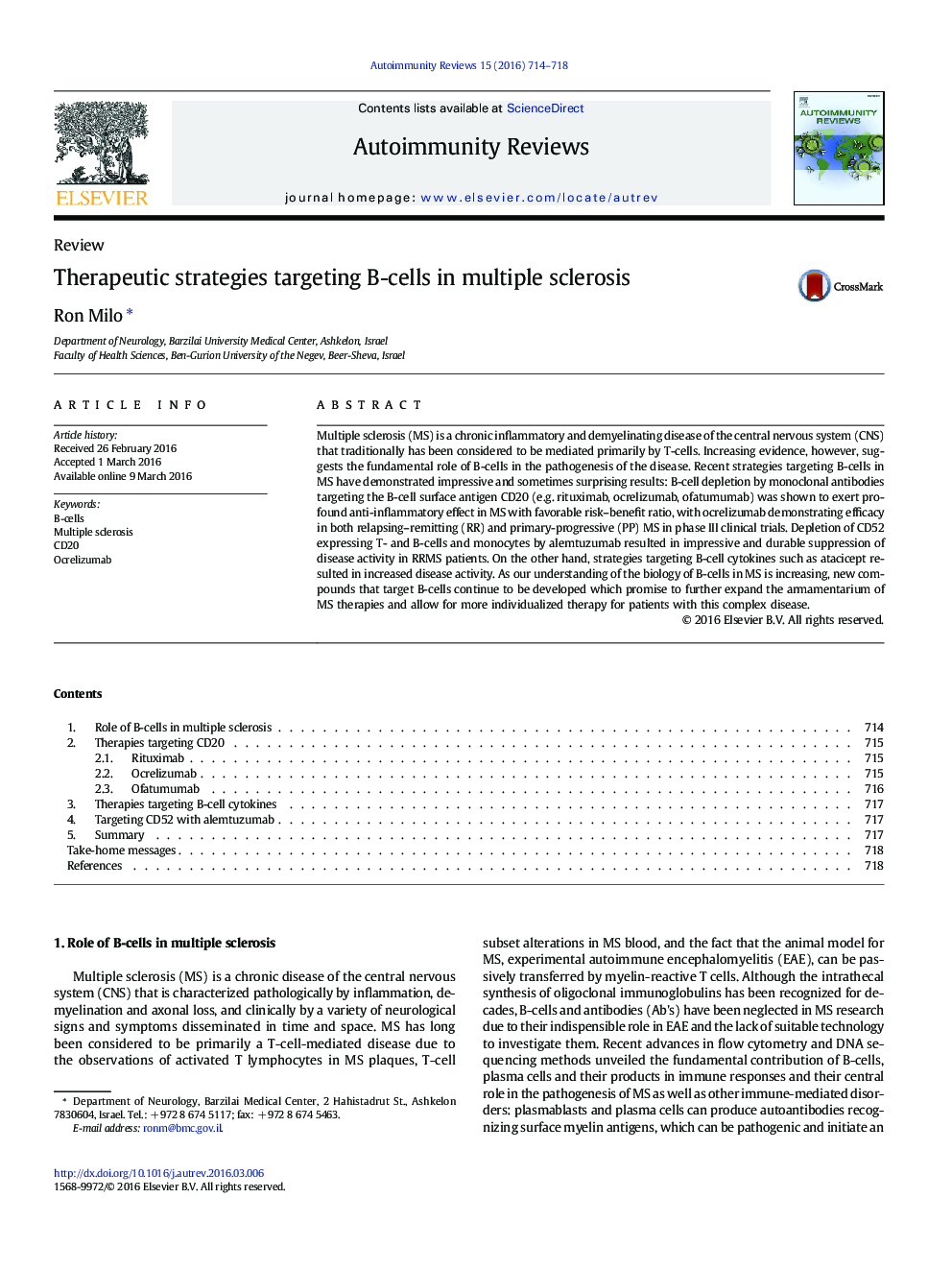| Article ID | Journal | Published Year | Pages | File Type |
|---|---|---|---|---|
| 3341348 | Autoimmunity Reviews | 2016 | 5 Pages |
Multiple sclerosis (MS) is a chronic inflammatory and demyelinating disease of the central nervous system (CNS) that traditionally has been considered to be mediated primarily by T-cells. Increasing evidence, however, suggests the fundamental role of B-cells in the pathogenesis of the disease. Recent strategies targeting B-cells in MS have demonstrated impressive and sometimes surprising results: B-cell depletion by monoclonal antibodies targeting the B-cell surface antigen CD20 (e.g. rituximab, ocrelizumab, ofatumumab) was shown to exert profound anti-inflammatory effect in MS with favorable risk–benefit ratio, with ocrelizumab demonstrating efficacy in both relapsing–remitting (RR) and primary-progressive (PP) MS in phase III clinical trials. Depletion of CD52 expressing T- and B-cells and monocytes by alemtuzumab resulted in impressive and durable suppression of disease activity in RRMS patients. On the other hand, strategies targeting B-cell cytokines such as atacicept resulted in increased disease activity. As our understanding of the biology of B-cells in MS is increasing, new compounds that target B-cells continue to be developed which promise to further expand the armamentarium of MS therapies and allow for more individualized therapy for patients with this complex disease.
